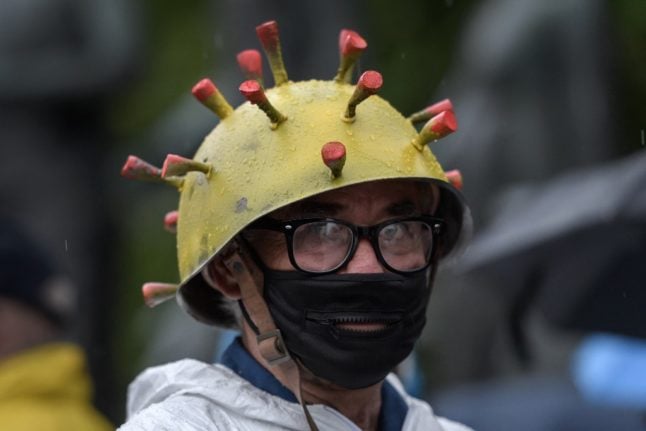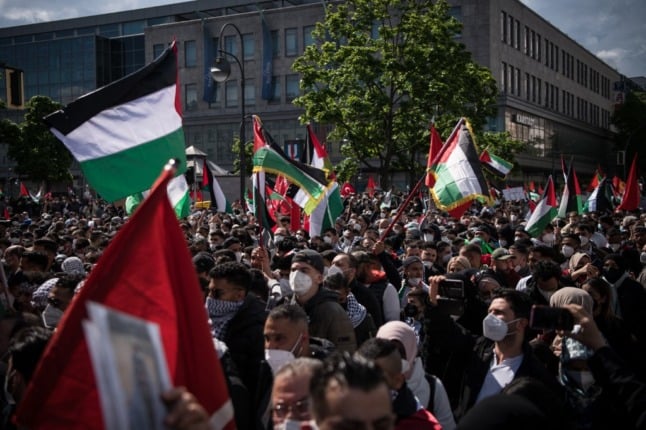Between 3,000 and 5,000 people, many wearing white protection jumpsuits, gathered in the small town in the Basel canton for what they have called a “Silent Protest”, according to estimates by journalists on site.
The protesters, many not wearing facemasks, held signs with messages reading “Enough!”, “Vaccines kill” and “Let love guide you, not fear”.
They accuse the Swiss government of using dictatorial powers to impose restrictions aimed at reining in Covid-19 transmission.
SEE ALSO: Switzerland to extend measures to fight Covid-19 ‘third wave’
The demonstration, which had police authorisation, is the latest in a series of public protests across the country in recent months, including one earlier this month in the small, picturesque town of Chur that drew over 4,000 people.
Organisers of Saturday’s demonstration in Liestal, which has a population of around 14,500 people, said in a statement they expected around 5,000 people to take part, but urged more to join.
They complained in a statement ahead of the march that the Swiss government had taken the country “hostage” over a year ago.
“We are going to Liestal to say to the people: it is time to stop the measures,” the statement said.
“These measures make no sense. To protect one percent of people at risk, they are destroying the lives of 99 percent of the population,” it said.
The march comes a day after the Swiss government dashed hopes that many Covid restrictions would be lifted next week.
Switzerland had been expected to continue lifting a range of measures imposed in December and January after a major spike in cases.
It had allowed museums and non-essential shops to reopen from March 1, and had signalled it could allow outdoor areas at restaurants and bars to reopen, and change the requirement to work from home, from next Monday.
But Health Minister Alain Berset said Friday it was too soon to remove most restrictions, warning of the danger of a “third wave” of infections.
As of Monday, the number of people permitted to attend indoor private gatherings will increase from five to 10, the government said.
But it said all other measures, including restaurant closures, would remain in place for at least another month.
Switzerland, a country of 8.6 million people, has to date counted nearly 578,000 cases of the virus, and 9,455 deaths.
EXPLAINED: What are Switzerland’s new ‘relaxed’ coronavirus measures?



 Please whitelist us to continue reading.
Please whitelist us to continue reading.
Member comments